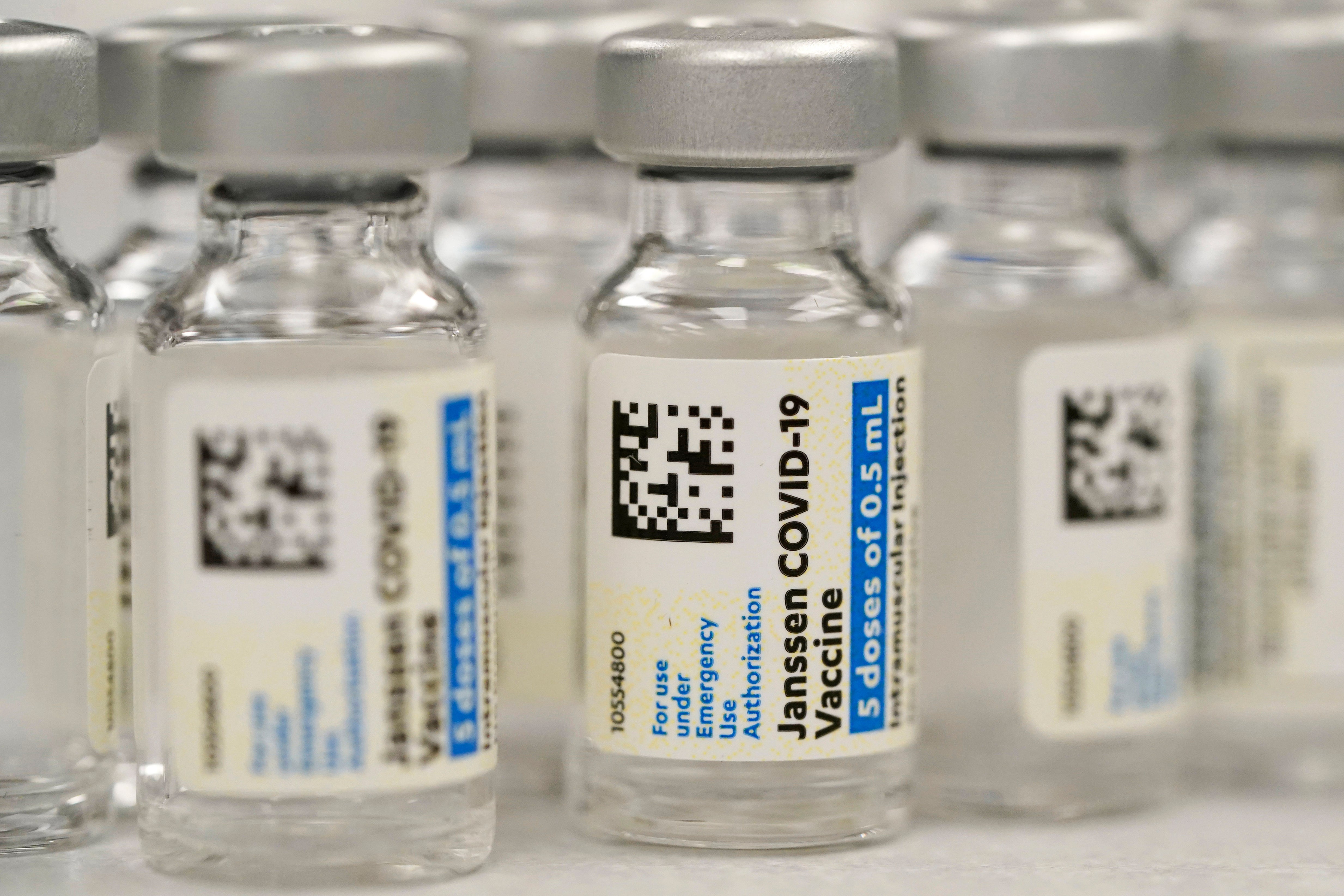J&J seeks US clearance for COVID-19 vaccine booster doses
Johnson & Johnson has asked U.S. regulators to allow booster shots of its COVID-19 vaccine as the U.S. government moves toward shoring up protection in more vaccinated Americans

Your support helps us to tell the story
From reproductive rights to climate change to Big Tech, The Independent is on the ground when the story is developing. Whether it's investigating the financials of Elon Musk's pro-Trump PAC or producing our latest documentary, 'The A Word', which shines a light on the American women fighting for reproductive rights, we know how important it is to parse out the facts from the messaging.
At such a critical moment in US history, we need reporters on the ground. Your donation allows us to keep sending journalists to speak to both sides of the story.
The Independent is trusted by Americans across the entire political spectrum. And unlike many other quality news outlets, we choose not to lock Americans out of our reporting and analysis with paywalls. We believe quality journalism should be available to everyone, paid for by those who can afford it.
Your support makes all the difference.Johnson & Johnson asked the Food and Drug Administration on Tuesday to allow extra shots of its COVID-19 vaccine as the U.S. government moves toward expanding its booster campaign to millions more vaccinated Americans.
J&J said it filed a request with the FDA to authorize boosters for people who previously received the company's one-shot vaccine. While company said it submitted data on several different booster intervals, ranging from two to six months, it did not formally recommend one to regulators.
Last month, the FDA authorized booster shots of Pfizer’s vaccine for older Americans and other groups with heightened vulnerability to COVID-19. It’s part of a sweeping effort by the Biden administration to shore up protection amid the delta variant and potential waning vaccine immunity.
Government advisers backed the extra Pfizer shots, but they also worried about creating confusion for tens of millions of other Americans who received the Moderna and J&J shots. U.S. officials don't recommend mixing and matching different vaccine brands.
The FDA is convening its outside panel of advisers next week to review booster data from both J&J and Moderna. It’s the first step in a review process that also includes sign-off from the leadership of both the FDA and the Centers for Disease Control and Prevention If both agencies give the go-ahead, Americans could begin getting J&J and Moderna boosters later this month.
J&J previously released data suggesting its vaccine remains highly effective against COVID-19 at least five months after vaccination, demonstrating 81% effectiveness against hospitalizations in the U.S.
But company research shows a booster dose at either two or six months revved up immunity even further. FDA's advisers will review that data next Friday and vote on whether to recommend boosters.
The timing of the J&J filing was unusual given that the FDA had already scheduled its meeting on the company's data. Companies normally submit their requests well in advance of meeting announcements. A J&J executive said the company has been working with FDA on the review.
“Both J&J and FDA have a sense of urgency because it’s COVID and we want good data out there converted into action as soon as possible,” said Dr. Mathai Mammen, head of research for J&J's Janssen unit.
The vaccine from the New Brunswick, New Jersey, company was considered an important tool in fighting the pandemic because it requires only one shot. But its rollout was hurt by a series of troubles, including manufacturing problems at a Baltimore factory that forced J&J to import millions of doses from overseas.
Additionally, regulators have added warnings of several rare side effects to the shot, including a blood clot disorder and a neurological reaction called Guillain-Barré syndrome. In both cases, regulators decided the benefits of the shot still outweighed those uncommon risks.
Rival drugmakers Pfizer and Moderna have provided the vast majority of U.S. COVID-19 vaccines. More than 170 million Americans have been fully vaccinated with the companies’ two-dose shots while less than 15 million Americans got the J&J shot.
___
The Associated Press Health and Science Department receives support from the Howard Hughes Medical Institute’s Department of Science Education. The AP is solely responsible for all content.